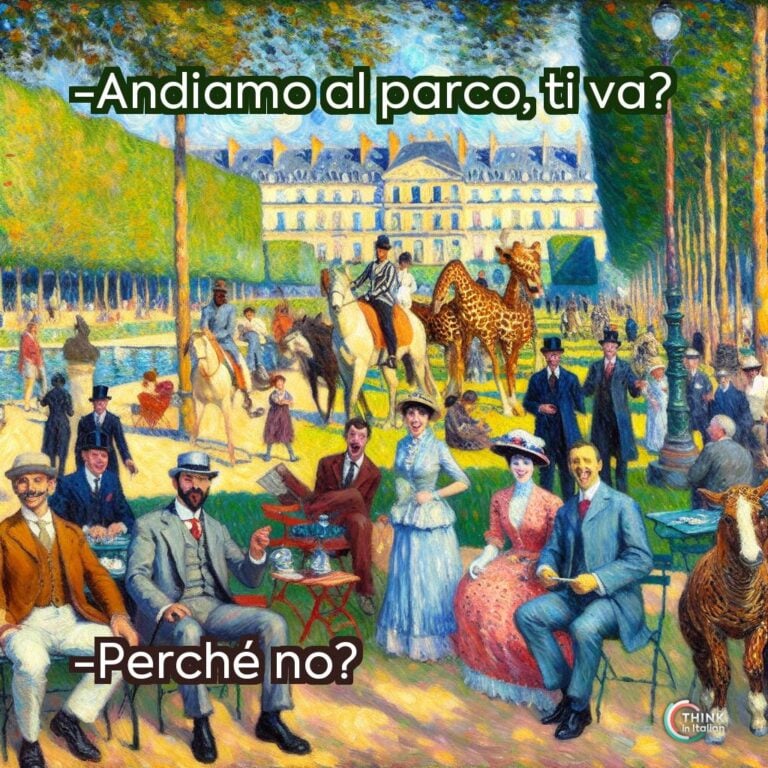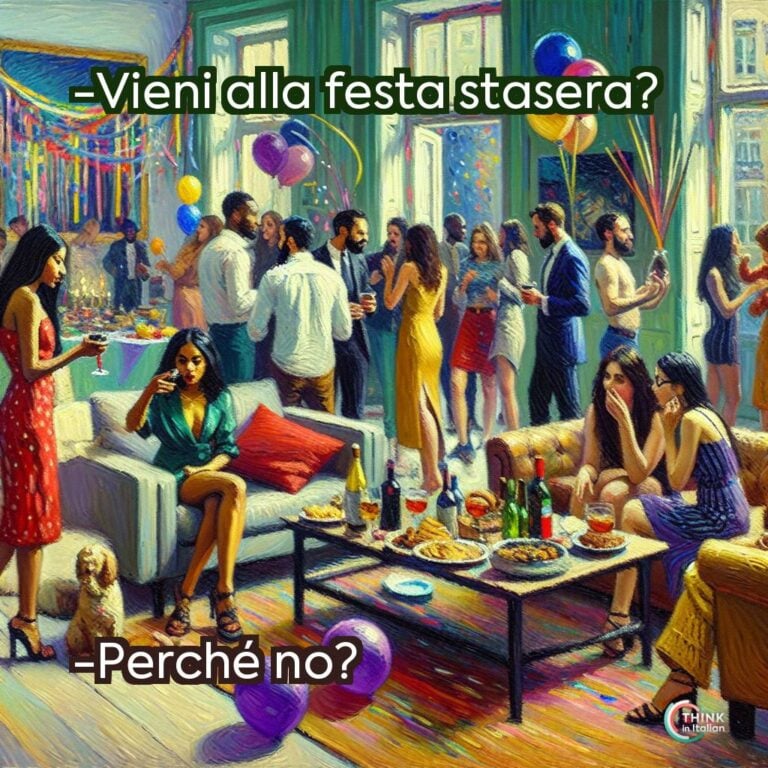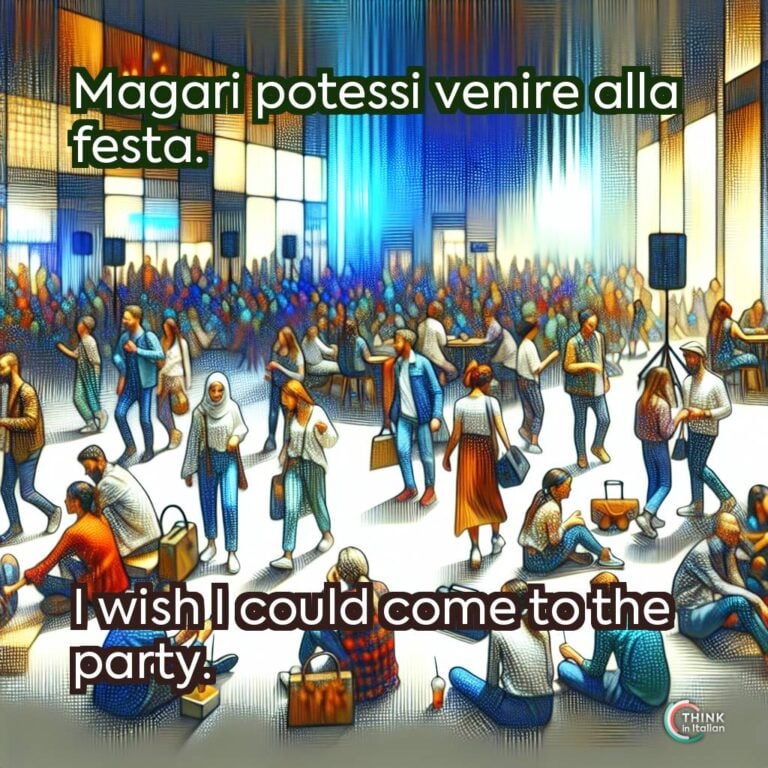How to Respond to Invitations in Italian
Did you just move to Italy? Are you making new friends or perhaps you need advice on how to date someone in Italy? Mastering how to respond to invitations is part of the learning process.
If you already know how to say “yes” and how to say “no”, then it is time to discover more alternatives to convey different levels of enthusiasm, formality, and intent. Let me show you some common ways to accept an invitation in Italian, along with their contexts and alternatives.
Exploring Different Ways to Say “Yes”
“Vengo”: The Straightforward Confirmation
Vengo is the first person singular of the present tense of the verb venire (to come), therefore meaning “I’m coming”. I think it is the most direct way to respond to an invitation in Italian: a clear and simple declaration of your intent to present.
For instance, if someone invites you out and you want to confirm your presence without much embellishment, you can simply say okay, vengo.
-Domani io e i miei amici andiamo al cinema. Vieni?
-Tomorrow my friends and I are going to the cinema. Are you coming?
-Sì, vengo.
-Yes, I’m coming.
-Stiamo per andare via, tu che fai?
-We’re about to leave, what are you doing?
–Vengo anche io.
–I am coming, too.
“Ci Sto”: Casual and Upbeat
If you’re looking to add a bit more enthusiasm to your response, ci sto might be your best bet. It can literally be translated to “I’m in”, and it is the perfect phrase for informal settings to express both agreement and excitement.
I use ci sto quite frequently among friends when planning activities, because it gives me the feeling of expressing more than just agreeing: for me, it conveys a sense of involvement.
-Domani io e i miei amici andiamo a cena fuori. Vieni?
-Tomorrow my friends and I are going out for dinner. Are you coming?
-Sì, ci sto!
-Yes, I’m in!
Notice that, in this expression, the pronoun “ci” can be translated as “there”, meaning the place where you are going to be present. It usually refers to physical locations, but in this context, it conveys a more figurative sense of being present or involved in a situation.
When you say ci sto you are essentially saying, “I am there” not in a literal place, but “there” in terms of your willingness to participate.
“Ci Sarò”: A More Formal Future Commitment
While vengo and ci sto are perfect for immediate plans, there are times when you need to confirm your presence for a future event. This is where ci sarò comes into play.
Ci sarò is the future tense of the verb essere meaning “I will be there”. It is particularly useful for more formal events, like meetings, conferences, or official gatherings, where you need to confirm your future attendance.
It is important that you distinguish ci sarò from ci starò. The distinction between essere and stare is essential in Italian: ci starò means “I will stay there”, which isn’t the intended meaning when accepting an invitation.
“Accetto con Piacere”: The Polite Formal Response
For more formal invitations, such as a business dinner, a wedding, or any official event, you might opt for accetto con piacere, which translates to “I gladly accept”.
This is the most polite response you can choose, as it allows to also expresses gratitude while confirming your attendance.
“Perché No?”: A Spontaneous Yes
Sometimes, invitations are more spontaneous, and you want your response to match that vibe. In these cases, you could say perché no? which means “why not?”.
I use a lot this phrase, because it is playful, perfect for casual situations where the plan isn’t too serious. I feel like saying “yeah, let’s do it!”. It really underlines the flexibility of Italian people in informal contexts.
“Magari!”: When You Wish You Could
Magari is one of the hardest words to translate in English. It is one of those words that have no equivalent in English, which require you to just learn them in context.
Magari translates to “I wish!” or “if only!” and it expresses a strong desire to accept but also implies some uncertainty, implying you actually cannot accept the invitation or leaving room for future confirmation.
It’s a versatile expression that shows your enthusiasm but also your limitations. We often use magari + congiuntivo, to express possibility or uncertainty, similar to maybe or perhaps in English.








